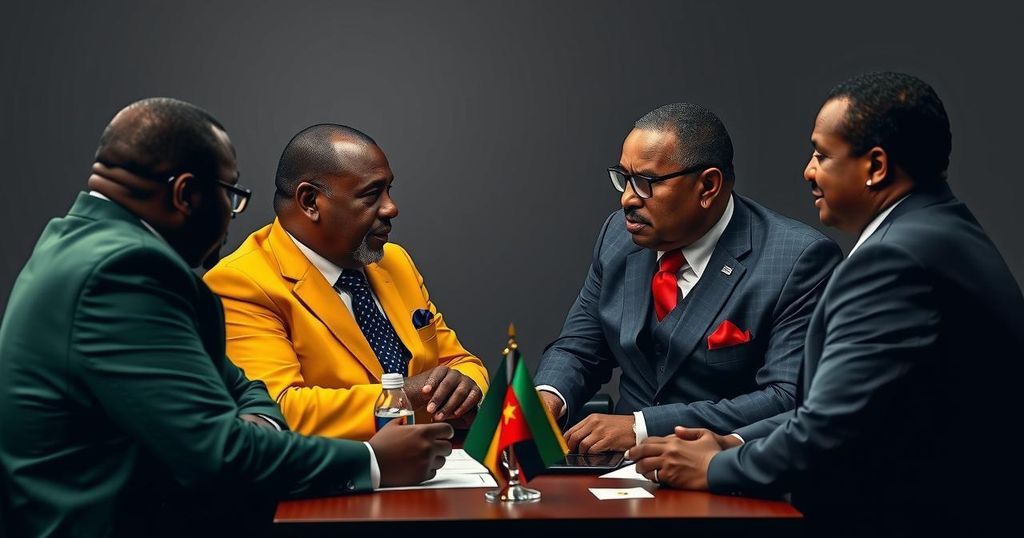Kenya and Uganda to Mediate Dispute Between Ethiopia and Somalia

Kenya and Uganda’s presidents are set to mediate the Ethiopia-Somalia dispute, which threatens regional stability. The conflict arises from Ethiopia’s plans for a port in Somaliland, leading to tensions with Somalia and shifting alliances involving Egypt. President Ruto stressed the importance of Somali security for regional business environments, as previous mediation efforts have failed to resolve the issue.
On Saturday, President William Ruto of Kenya announced that he, alongside Ugandan President Yoweri Museveni, will mediate discussions aimed at resolving the ongoing dispute between Ethiopia and Somalia. This conflict poses a significant threat to the stability of the East African region, especially as Ethiopia maintains a military presence in Somalia to combat al Qaeda-affiliated groups. Tensions have escalated following Somalia’s objections to Ethiopia’s plans for a new port in Somaliland, a region striving for global recognition since its unilateral declaration of independence in 1991. As a result, Somalia’s growing alignment with Egypt and Eritrea further complicates Ethiopia’s position, especially in light of past tensions over the Nile River dam project. President Ruto emphasized that “the security of Somalia … contributes significantly to the stability of our region, and the environment for investors, business people and entrepreneurs to thrive.” Previous negotiations held in Ankara, Turkey, have failed to yield successful outcomes, and attempts to engage Ethiopia’s government have gone unanswered, with Somalia’s foreign minister also unavailable for comment.
The historical context surrounding the Ethiopia-Somalia dispute involves a complex interplay of politics and territorial claims, particularly regarding Somaliland, which has functioned autonomously since declaring its independence in 1991. Despite its stability and self-governance, Somaliland remains unrecognized by the international community, leading to friction with Somalia, which continues to assert its sovereignty over the territory. Ethiopia’s involvement, particularly through military engagement against Islamist insurgents, further complicates this regional dynamic, especially as relationships worsen over resource control issues, such as the contentious Nile River dam project that has seen Ethiopia and Egypt at odds.
In conclusion, the mediation efforts led by Kenya and Uganda highlight the urgent need for dialogue in mitigating the ongoing dispute between Ethiopia and Somalia. The stability of Somalia is deemed critical not only for the country’s future but for the broader East African regional landscape, which is increasingly influenced by shifting alliances and geopolitical tensions. As these negotiations progress, the international community may play a pivotal role in fostering a conducive environment for peace and stability in the region.
Original Source: www.sowetanlive.co.za








